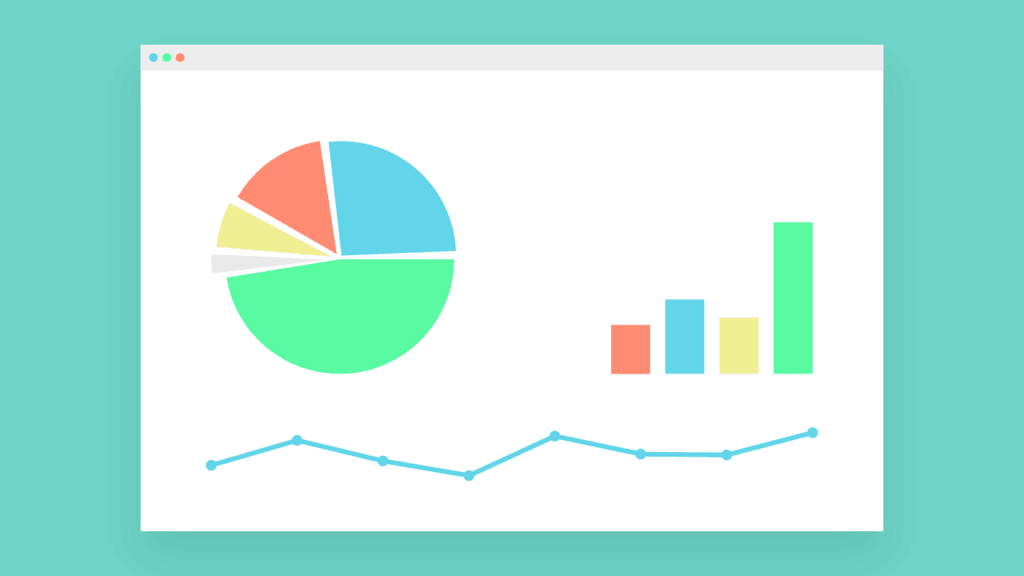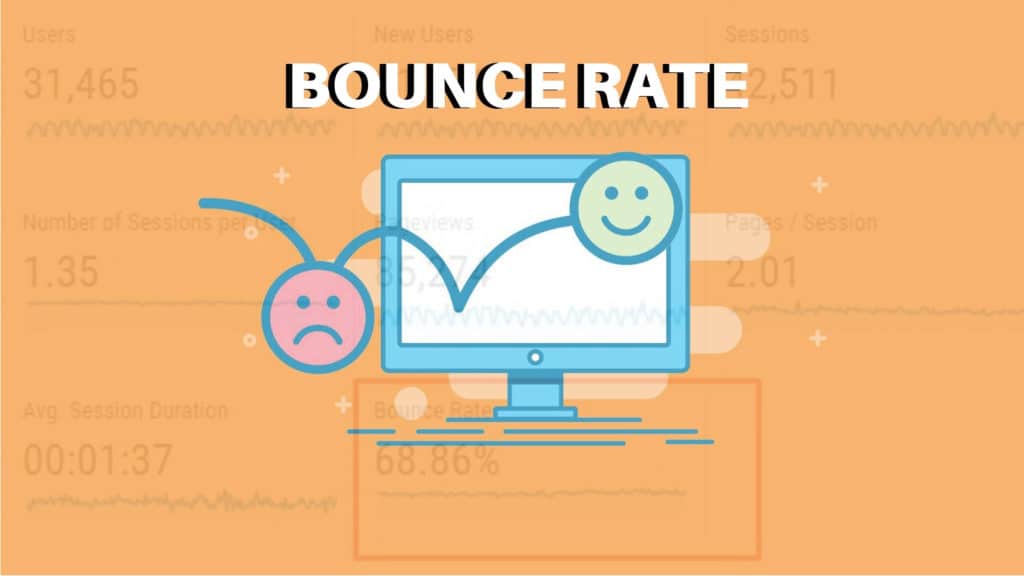Search engines, like Google, evaluate sites based on several ranking factors. This means that to rank well in Google, you need to know where to aim your SEO game, and this you can only do by knowing and applying the right elements of SEO.
While there are several SEO trends and even more developing every other time, to get the right traffic to your site and rank higher, you must keep up with the latest elements of SEO that Google is using.
Optimized sites mean more traffic, more leads, and more sales. Without SEO, your audience will not be able to find you.
Page Contents
What Is Ranking in SEO?

Search Engine Optimization (SEO) simply means making a web page better for ranking.
This is in regards to the position of your content on search engine results pages (SERPs).
When you rank number one, it means that when people search for a product that is related to your site, your web page is the first result.
This does not include answer boxes, promoted results, and features snippets.
Appearing in the top three results is also admirable because half of the clicks on search results pages to the first three positions.
Your website must appear on the first page because 75% of users never go beyond the first page when searching for an item.
Important Elements of SEO for Ranking
To rank high in Google, here are some of the most important elements of SEO ranking that you need to know and also apply as you build your website and your content too:
1. High-Quality Content
Content reigns as king, and if you want to rank higher, you need to ensure that you only publish high-quality content.
Optimized content holds a lot of valuable SEO power. Therefore your content should provide important information because creating a page that has no value will only end up hurting your business.
High-quality content is all about creating pages that provide helpful information, increase time on a page, and lower bounce rate.
To increase presence in SERPs, such content should have:
- Search Intent: Create pages that drive organic traffic by knowing what the user is looking for
- Keyword Research: Identify the word that you will use as a creation roadmap
- Voice Search: More than 70% of people today search for products using voice-activated speakers.
- Rich Snippets: This uses the schema to markup text and data for more visibility on Google search results
When creating content for your website, you should also consider an article word count.
This is the first thing that will inform a user’s opinion concerning that particular page.
Though the exact number of words an article should have is debatable, long articles tend to create an impression of in-depth analysis.
2. Page Speed

This is one of the main elements of SEO rankings.
Google aims to improve a user’s experience of the web, and a fast loading web page is one way of doing so.
Your desktop and mobile pages should both be able to load very fast for better ranking.
You can use Google’s mobile testing tool to see how well your site loads.
Remember, page speed is a Google mobile ranking factor. Slow sites translate to fewer visitors, lost revenue, and low ranking.
3. Mobile-Friendly Site

Your target audience is using their smartphones to search for products. Several websites today are building mobile-friendly and responsive websites.
In as much as Google said that they do not favor any one set of mobile websites, whether dynamic, separate URLs or responsive, they recommend a responsive website
According to Google, a responsive site helps Google’s algorithm to assign indexing properties to the page accurately.
Therefore, in this age of mobile-first index, a mobile website is the vital force of your existence in the SERPs. Ensure that your content matches on both your desktop and mobile.
4. Secure Website

Even though not switching to HTTPS will not harm your site, there are a lot of changes since Google announced HTTPS as a ranking signal in 2014.
Later in 2017, they announced that the Chrome browser would begin to flag sites as not secure when they are not HTTPS.
Since Google thinks HTTPS is important, so should you.
5. Improved User Experience

User experience (UX) has a huge impact on SEO. If you ignore it, your website will not be able to survive the storm that will hit it.
Site visitors are likely to ignore or lose interest with a site that has an unattractive layout and content.
Search engines look at how much time your guests take on your website before they exit.
If you give your visitors a great experience, they will spend more time on your site, and this will have a good impact on your ranking.
6. Site Architecture

This is all about how fast your visitors will take to find what they are looking for.
With proper website navigation, it should take a user very few clicks to see what they want.
In other words, your website should be very easy to use. The pages and navigation should be as simple as possible.
It should take your visitor a maximum of four clicks to find a page on your website. If you have a large site, you might want to find other ways to help your visitors find what they are looking for fast, if this way is not possible.
Here is where a good site map comes in.
The presence of a sitemap will help search engines index your pages thoroughly and more efficiently, and this will improve visibility.
7. Page Optimization

This deals with the technical components of SEO. Though this has been around for years, it still has an impact on your site’s visibility and SERP position for your primary keyword.
Optimizing your website will help your already existing high-quality content get found a lot faster by users and search engines.
Some on-page optimization that will make an impact include metadata, schema, and internal link structure.
8. Relevant and Authoritative Links
Links will continue to be one of the main elements of SEO ranking.
The web is built on links, and therefore, it is only natural that links are a crucial element of SEO.
The three kinds of links that you should consider are:
- Inbound links
- Outbound links
- Internal links
Google also uses inbound links as one of the ways of determining how relevant and authoritative your content is.
Have very few inbound links from low-quality domains and remember to link to your content to help tie your pages together for your visitors and Google.
9. Domain Age, URL, and Authority
Almost 60% of the sites that rank among the top ten are either three years old or more.
If you have an old website and you have already optimized it using some of these tips, then you already have an advantage.
Though Google penalizes exact match domains, the penalty is mainly for spammy sites with little content.
Exact match domains that are considered valuable, high quality, and relevant can rank higher.
If you are already established, do not go looking for an exact match domain, instead, focus on a URL that reflects who you are and optimize it.
10. Social Signals

When your content is being shared on social media sites, it is an indication that it is valuable.
There is a link between search engine ranking and social shares.
Even though Google says that this is not a ranking factor, some of the highest-ranking pages on Google search results have a lot of social media shares.
The more your content is shared, the more it is seen, and this will direct visitors to your website.
More social shares lead to more website visitors, and this helps your Google ranking, even though indirectly.
Up your social media game today for better ranking.
11. Real Business Information
This is important for businesses that are targeting specific local areas.
The absence of business information is a huge obstacle to your SEO ranking. To rank higher, you need to look out for:
- Name, address, and phone number
- Right local search terms
- Business listings on Facebook and Google My Business
- Positive reviews on Yelp and other relevant directories
These SEO ranking factors will help your website earn a spot in the top pages in Search engines.
Check out other local SEO guides and tips so that you can know how to navigate around the world of SEO and ranking.
Do not forget to get feedback and reviews from your customers.
12. Industry Study
This is the best way of getting backlinks from authority blogs and news sites that are also in the same niche as you.
Publishing an industry study can bring a lot of good quality traffic to your website, a ton of social media shares, and mentions in the press.
This traffic will be noticed by Google and will, in turn, affect how you rank.
13. Delete Zombie Pages

If you have old pages that do not bring in any traffic to your website, then it is time to delete them.
When you delete zombie pages, you will get more traffic and higher rankings. This is because Google can recognize the pages that remain unvisited, and this will affect how your traffic is calculated.
Remember, Google does not rank sites that are full of low-quality content.
You better have one well-optimized page than several that remain unvisited and considered low quality.
14. Direct Traffic
One of the most obvious elements for SEO ranking is just getting people to your website.
Google uses data from Google chrome to know how many people visit a website and also how often they do so.
Sites with a lot of direct traffic are most likely to be quality websites. Such sites will get a higher ranking.
A websites’ popularity can be indicated by the number of visitors it has.
Visitors can find your site through paid ads, organic search, direct visits, social networks, referring domains, emails, and more. Just make sure that your target audience can find you.
15. Bounce Rate

This is one of the most misunderstood metrics when it comes to Google analytics. It can be described as the percentage of a single page visit.
It’s the percentage of times a visitor leaves your website at the landing pages without visiting any other page on your website.
In as much as not everyone thinks that bounce rate matters, it can be a way for Google to use its users as testers. Pages with a high bounce rate probably mean that they are not an excellent result for that specific keyword.
A study by SEMRush found a relation between Google rankings and bounce rate.
16. Site Updates
Many people in the SEO world believe that adding new content to your website and keeping it updated will improve its ranking.
Google, however, denied using publishing frequency in its algorithm.
Think of it this way, even though the new content will not count, your visitors will take more time on your website reading it, and this will improve your ranking.
17. Multimedia

Multimedia elements like images, videos and act as content quality.
Moreover, so many people prefer watching videos about a product rather than reading about it.
Loading your sites with good quality videos and images will attract more people to your website and keep them there too.
Consider These Elements of SEO Ranking For a Higher Ranking in Search Engines
Ranking signals help SEO marketers create awesome content and web designer’s very interactive websites.
These elements of SEO ranking will help you get your site to the next level as far as Google ranking is concerned. Such tips allow for a better SEO strategy.
If you want to learn more about SEO for your website or read more such articles, visit our blog for more.

